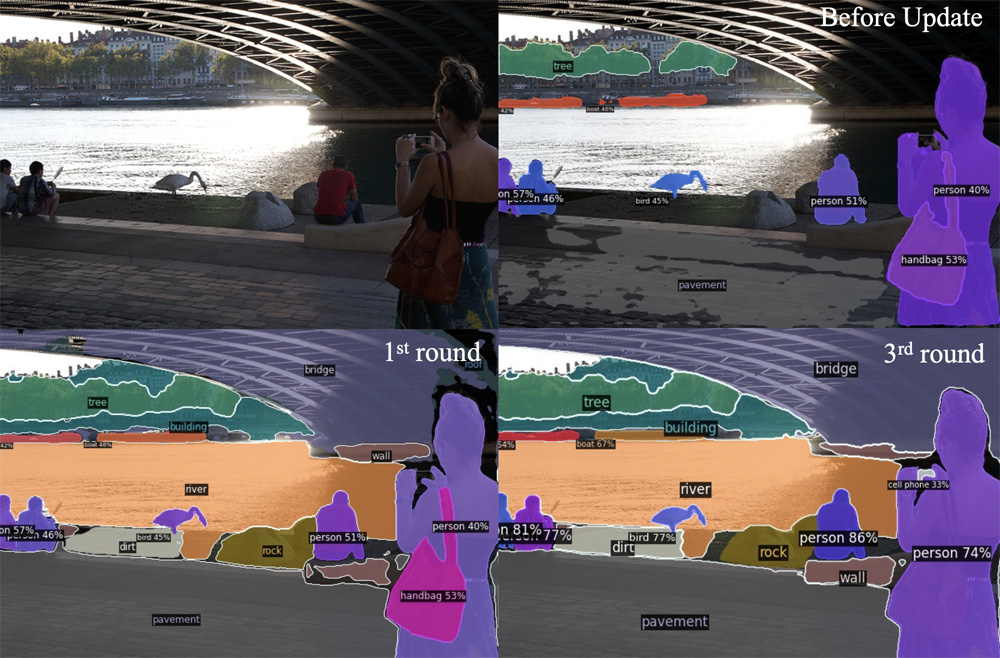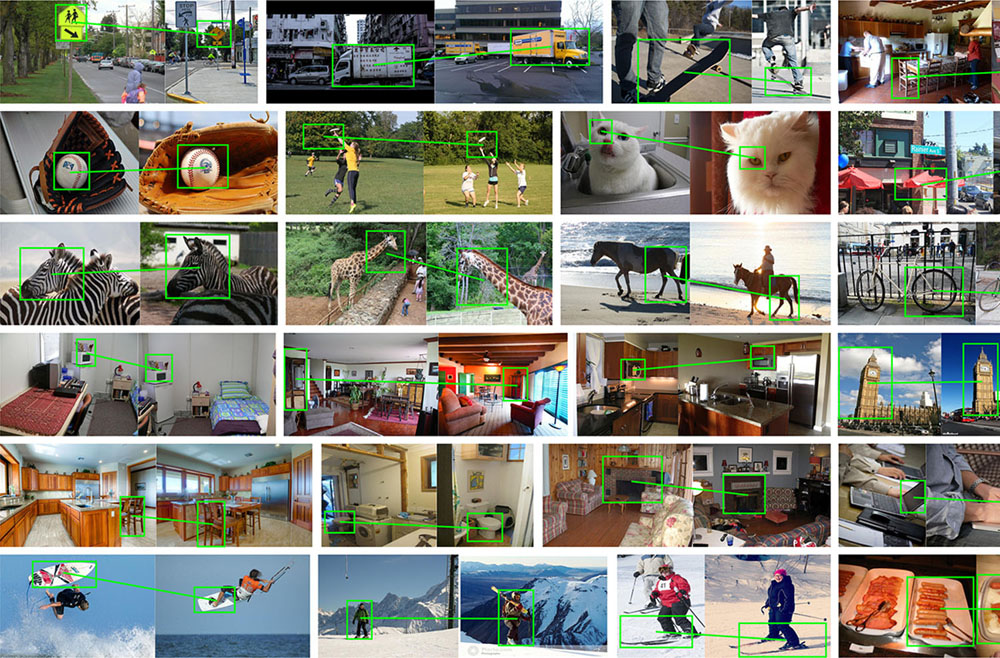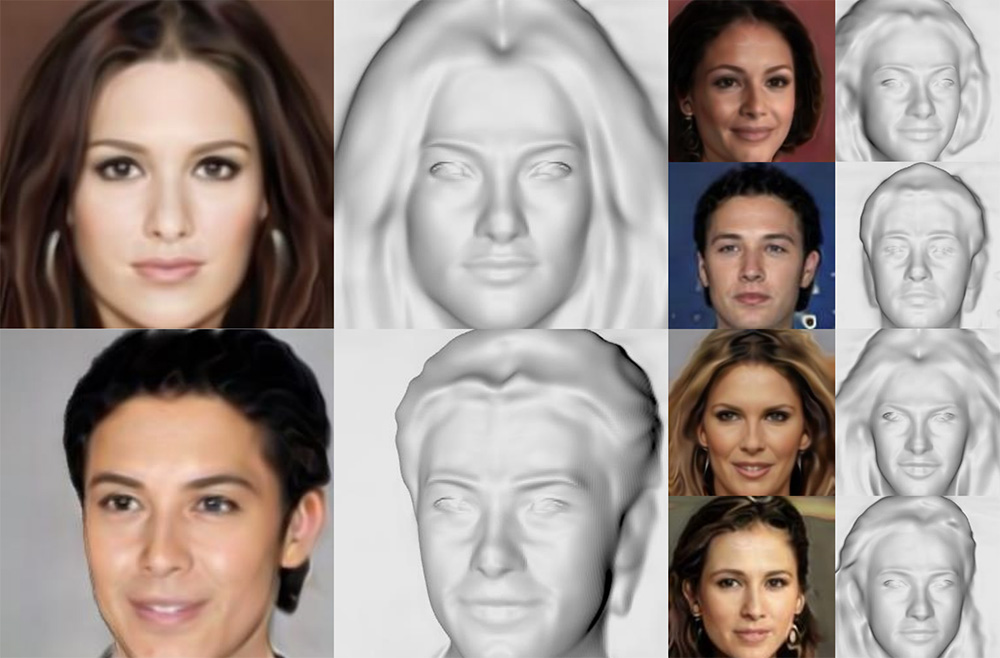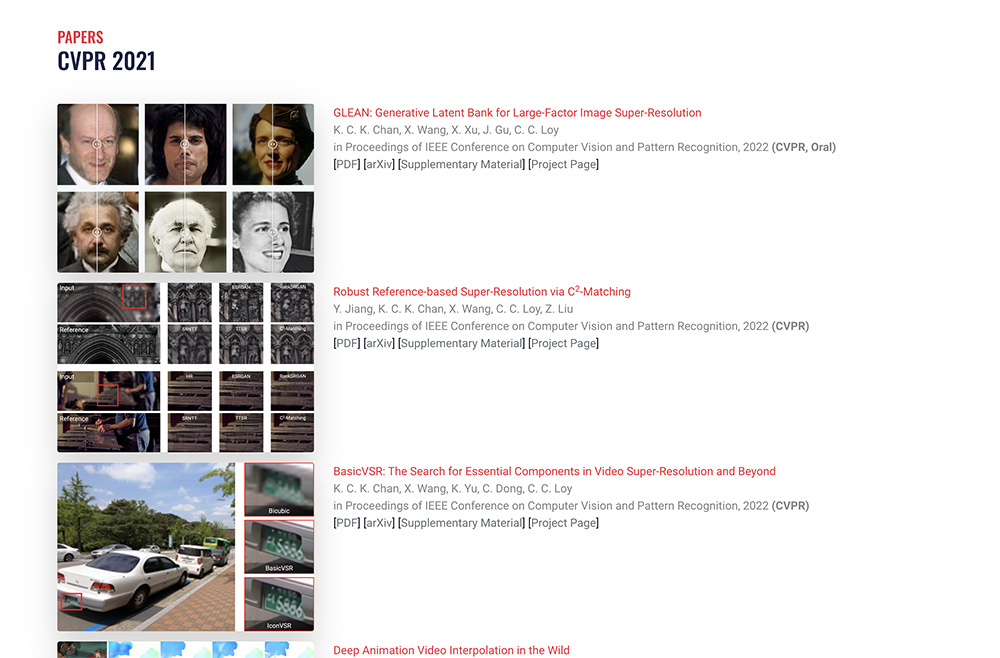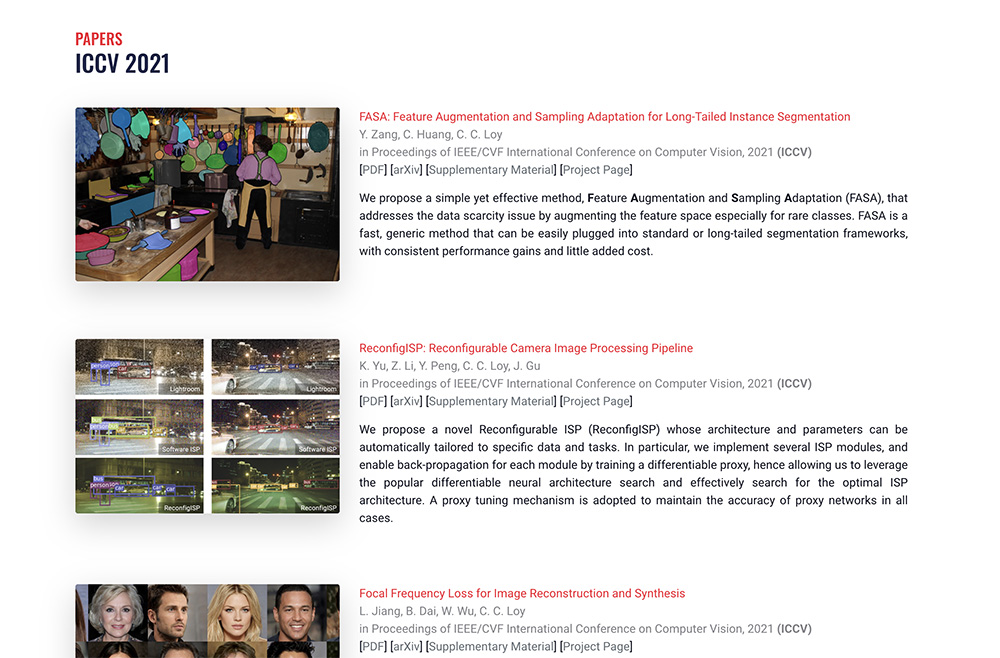Papers
NeurIPS 2021
Deceive D: Adaptive Pseudo Augmentation for GAN Training with Limited Data
L. Jiang, B. Dai, W. Wu, C. C. Loy
in Proceedings of Neural Information Processing Systems, 2021 (NeurIPS)
[arXiv]
[PDF]
[Project Page]
[YouTube]
We introduce a novel strategy called Adaptive Pseudo Augmentation (APA) to encourage healthy competition between the generator and the discriminator. As an alternative method to existing approaches that rely on standard data augmentations or model regularization, APA alleviates overfitting by employing the generator itself to augment the real data distribution with generated images, which deceives the discriminator adaptively.
K-Net: Towards Unified Image Segmentation
W. Zhang, J. Pang, K. Chen, C. C. Loy
in Proceedings of Neural Information Processing Systems, 2021 (NeurIPS)
[arXiv]
[Project Page]
Semantic, instance, and panoptic segmentations have been addressed using different and specialized frameworks despite their underlying connections. This paper presents a unified, simple, and effective framework for these essentially similar tasks. The framework, named K-Net, segments both instances and semantic categories consistently by a group of learnable kernels, where each kernel is responsible for generating a mask for either a potential instance or a stuff class.
Unsupervised Object-Level Representation Learning from Scene Images
J. Xie, X. Zhan, Z. Liu, Y. S. Ong, C. C. Loy
in Proceedings of Neural Information Processing Systems, 2021 (NeurIPS)
[arXiv]
[Project Page]
We introduce Object-level Representation Learning (ORL), a new self-supervised learning framework towards scene images. Extensive experiments on COCO show that ORL significantly improves the performance of self-supervised learning on scene images, even surpassing supervised ImageNet pre-training on several downstream tasks.
A Shading-Guided Generative Implicit Model for Shape-Accurate 3D-Aware Image Synthesis
X. Pan, X. Xu, C. C. Loy, C. Theobalt, B. Dai
in Proceedings of Neural Information Processing Systems, 2021 (NeurIPS)
[PDF]
[arXiv]
[Project Page]
We address the shape-color ambiguity in existing 3D-aware image synthesis methods with a shading-guided generative model that satisfies the multi-lighting constraint. The proposed ShadeGAN is able to learn more accurate 3D shapes for better image synthesis.


